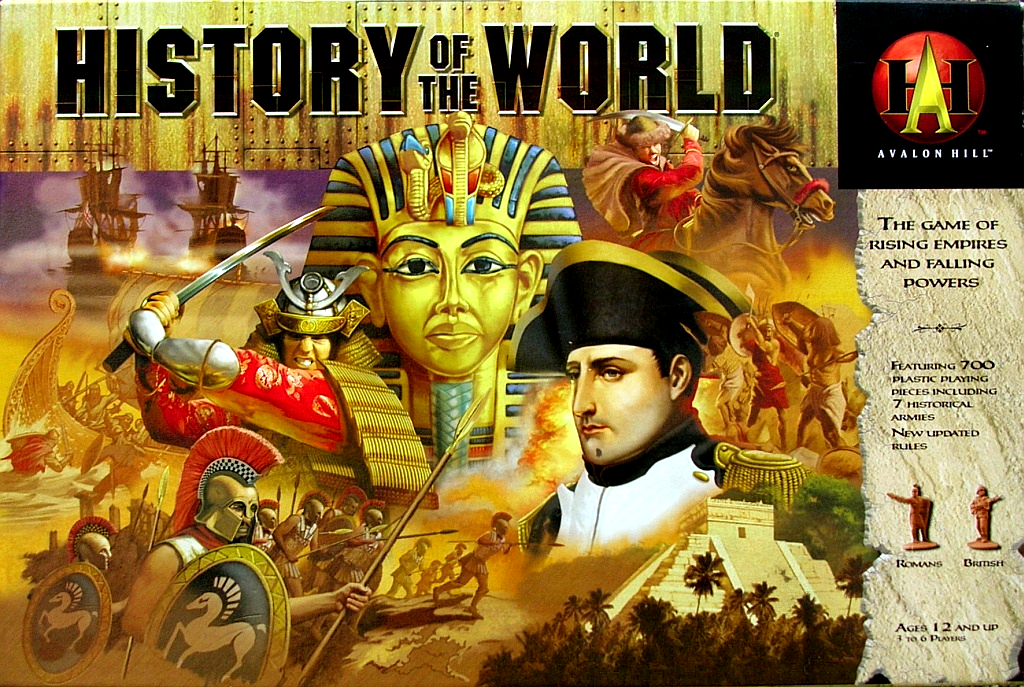“Human history becomes more and more a race between education and catastrophe.” ― H.G. Welcome to World History! The study of history should be a relevant and meaningful experience. This course will highlight people, events, issues, and themes instead of the memorization of trivial detail. The goal is to make connections with what we learn in class to the world around you. If you are interested in English History then this site is for you. It began life as the Peel Web, a resource for students of the period 1830-50 and has been extended to include the period 1760-1830. 18,267 likes 7 talking about this. History and mythology of man from ancient times till now.
Syllabus
instructor: David Peal

In the first semester students begin by exploring one of the oldest and most successful civilizations: China. Students analyze how China was governed and met basic needs (food and trade), and what people believed. A brief unit then looks at the Roman Empire: how was Rome governed, what did people believe. and why, in comparative perspective, did this empire fail? In the balance of the first semester, students examine the rise of Islamic empires and their relationship to the Christian kingdoms of Europe.
World History Homework Blogspot
Major themes in the second quarter include conflicts between empires (the Crusades) as well as connections between empires (the Silk Road).In the second semester the focus shifts from the Old World to connections between the Old World and the New World. Students first learn about the the conflicts that tore Europe apart in the 1600s and 1700s and then turn to the dramatic expansion of Europe's power after 1500. The year ends with a look at how slavery was introduced in the New World.
World History Homework
The year is organized in a small number units:

- Secrets of China's success
- Islamic empires
- The Middle Ages in Europe
- Europe during the Renaissance and wars of religion
- Europe and global trade, 1500-1800
How you will learn
To learn about these topics you will work closely with a wide variety of maps, visual sources, and readings, including primary sources. For most topics, you will have an interactive presentation and set of vocabulary words covering the core content. To reinforce learning, homework will be assigned twice a week. To assess your understanding you can expect, for most topics, a project.
For each topic, you will find presentations, vocabulary games, and other interactive resources on the class Web site (which you are using right now; click Current work). These resources are designed to help you learn the core material you need to explore new topics.
How grades are calculated
Quarterly grades are based on homework (30%), project work (30%), quizzes (25%), and participation (15%). Homework will be done primarily on Google Classroom; many homework assignments will be completed, in part, in class. Participation refers to compliance with PBIS (the school's positive behavior system), appropriate participation in classroom activities, and contribution to a positive classroom environment.
Technology in this course
You are expected to use Blackbaud to get assignment details and keep track of how you are doing. Much of the classwork and homework will be done directly on Google Classroom. Make sure to use your online accommodations for reading, writing, and organization. Mr. Peal can help you use all these tools to help you succeed in this class. Have a great year!
This year in Modern World History you will learn about some of the huge changes that have transformed the world in the past two hundred years. This year’s key themes include rapid economic change, the rise of new nations, the spread of democracy, and the impact of technology on just about all aspects of life. The course focuses on Europe, Asia, and Africa, with the United States playing a growing role after the 1890s. The course is arranged in a small number of large topics, including the Industrial Revolution in Britain, the expansion of Europe's empires, World War One and its effects, and World War Two. Time permitting, the course gives a big-picture view of the problems of the postwar world.
How you will learn
To learn about these topics you will work closely with a wide variety of maps, visual sources, and readings, including primary sources. For most topics, you will have an interactive presentation and set of vocabulary words covering the core content. To reinforce learning, homework will be assigned weekly. To assess your understanding you can expect, for most topics, a project.
For each topic, you will find presentations, vocabulary games, and other interactive resources on the class Web site (which you are using right now; click Current work). These resources are designed to help you learn the core material you need to explore new topics.
How grades are calculated
Quarterly grades are based on homework (30%), project work (30%), quizzes (25%), and participation (15%). Homework will be done primarily on Google Classroom; many homework assignments will be completed, in part, in class. Participation refers to compliance with PBIS (the school's positive behavior system), appropriate participation in classroom activities, and contribution to a positive classroom environment.
Technology in this course
Much of the classwork and homework will be on Google Classroom. Make sure to use your online accommodations for reading, writing, and organization. Mr. Peal can help you use all these tools to help you succeed in this class. Have a great year!
